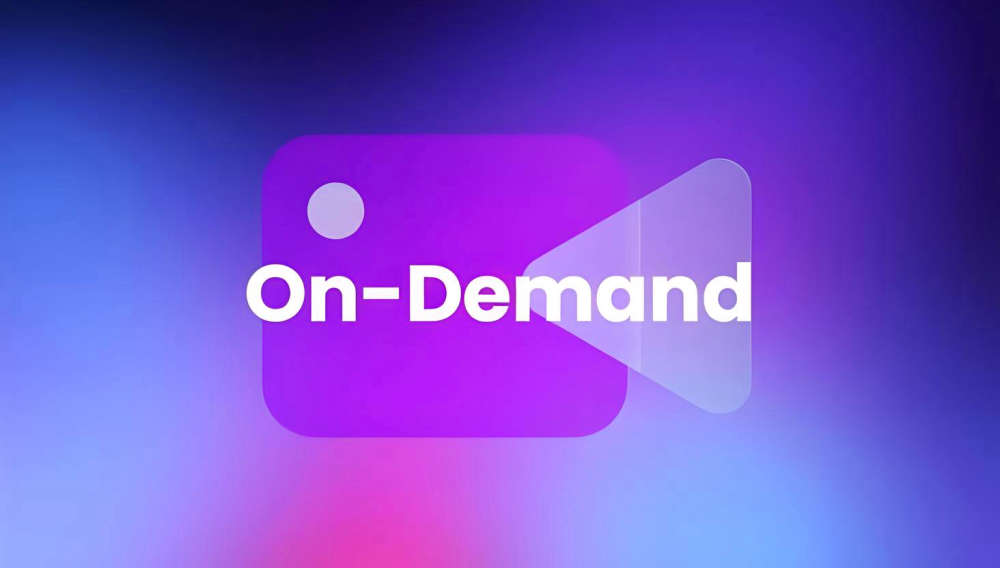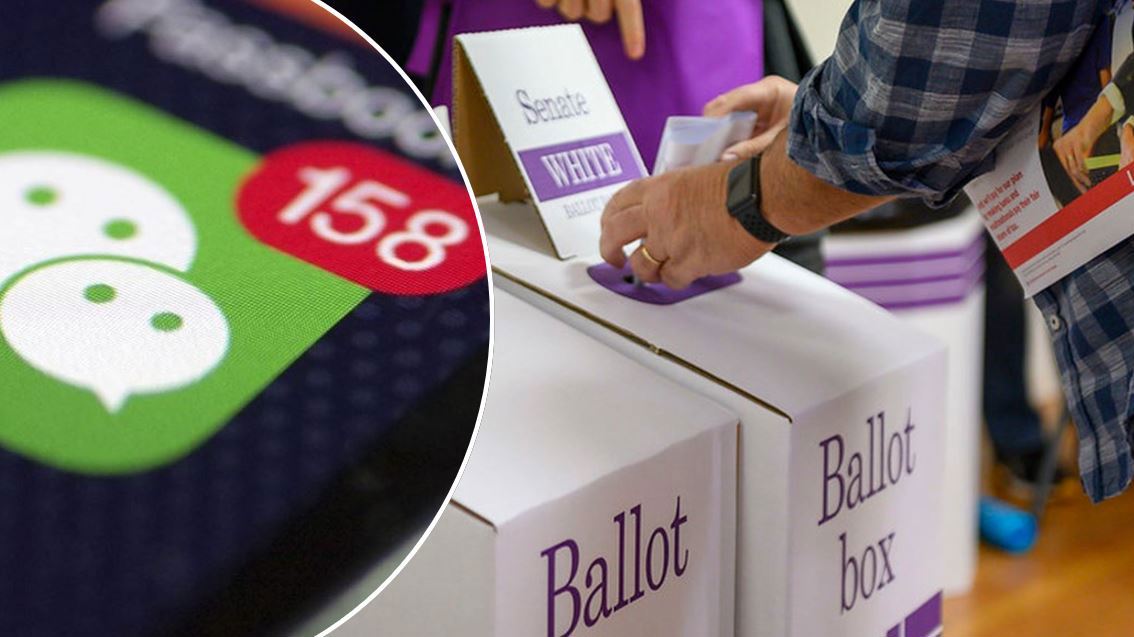
Disinformation on Chinese social media apps has surged in the lead up to the election.
Political disinformation targeting voters on Chinese social media platforms has surged over the past five years, but has been exacerbated by this federal election campaign.
In a research document viewed by 9news.com.au, thousands of examples of misleading or factually incorrect political information on Mandarin language apps like WeChat and RedNote, recorded over a five-year period, were laid bare.
The RECapture project, led by University of Melbourne research fellow Dr Fan Yang, uncovered exaggerated or false information about both the major parties on the platform.
This misinformation is often driven by protagonists with a commercial interest., in particular migration, real estate and education agencies.
READ MORE: The major election promises Labor and the Coalition have made to try and win your vote
The platforms: WeChat and RedNote
WeChat is the primary social media service for Mandarin speakers around the world and is used by more than 70 per cent of Chinese Australians.
But the recent rise of RedNote, or Xiaohongshu - think China's answer to Instagram - has also led to a rise in disinformation narratives targeting migrant communities.

On WeChat, third-party news outlets often repurpose news taken from trusted Australian and global news sources, by translating them for their Mandarin audiences.
But the research found intentional mistranslations or misinterpretations sometimes clouded the overall view shaped by the articles.
Almost 30 per cent of Chinese Australians reported encountering "made-up news" at the 2022 federal election, according to research from the Lowy Institute.
A further 34 per cent of respondents said they were not confident in recognising misinformation or disinformation in news.

A post to WeChat from March 25, titled, "Warning! The policy suddenly changed, and a large number of Chinese may be deported!", has been viewed over 20,000 times.
The post is accompanied by an image of ICE officers in the US and opens with anecdotes relating to the deportation of illegal immigrants back to China from the United States.
The post also falsely claims "tens of thousands of Chinese may be deported" and accuses both major parties of backing the policy.
READ MORE: Federal Election 2025 Results Tracker

"Some Chinese-language media outlets here in Australia have repurposed the news and they take out the context of the incident," Yang said.
Disinformation narratives on WeChat are "nothing new", according to Yang, but the federal election campaign has exacerbated the issue.
"Election campaigns, especially the intensity of politicians coming out to talk to people and the intensity of media coverage of Australian politicians, just give those businesses more opportunities to exploit any lines from those politicians," Yang said.
TikTok's volatility pushes users towards a new threat
In January, Western users flocked to RedNote - known for its short video functionality - as uncertainty surrounded the future of TikTok in the United States.
Downloads in Australia also surged, but it wasn't just consumers taking interest in RedNote, or Xiaohongshu, which translates to "little red book" in English.
READ MORE: Government via the suburbs: The key seats the Coalition needs to win this federal election

Yang said disinformation narratives identified on RedNote were "quite similar" to those on WeChat, but the volume of misleading content was "double or even triple".
The AEC confirmed it was aware of the issue on RedNote and has "already received a number of referrals from Australian RedNote users about electoral content for the upcoming federal election".
"The AEC assesses and, when appropriate, actions referrals made by users of social media platforms," a spokesperson said.
Who is behind disinformation narratives?
A "significant amount" of misleading content is commercially driven, Yang said.
Yang and the RECapture research team identified migration, real estate and education agencies exploiting election policies to monetise fears and anxieties within the Chinese migrant communities for business gain.
"They have been playing a big part in manipulating the line of policies or manipulating a specific line of Australian politicians to distribute commercially driven disinformation," Yang said.
"Elections mean social change is going to happen, so that also opens up the opportunity for those migration agencies or those business entities to ... exploit those anxieties from the public for their own business gain."
READ MORE: Labor was struggling in the polls, but could gain a number of key seats to claim a second term
As an example, one video posted to RedNote last month suggested Immigration minister Tony Burke was keen on cancelling visas.
The caption implored Chinese migrants to apply for permanent residency before immigration policies are tightened, backed up by a business pitch from a migration agent.
The AEC does not currently have an active presence on WeChat or RedNote, but said it was "able to investigate content on these platforms if it is referred to us".
The Australian Communications and Media Authority (ACMA) told 9news.com.au it "does not have a formal regulatory role in misinformation or disinformation" and does not monitor it during elections.
DOWNLOAD THE 9NEWS APP: Stay across all the latest in breaking news, sport, politics and the weather via our news app and get notifications sent straight to your smartphone. Available on the Apple App Store and Google Play.
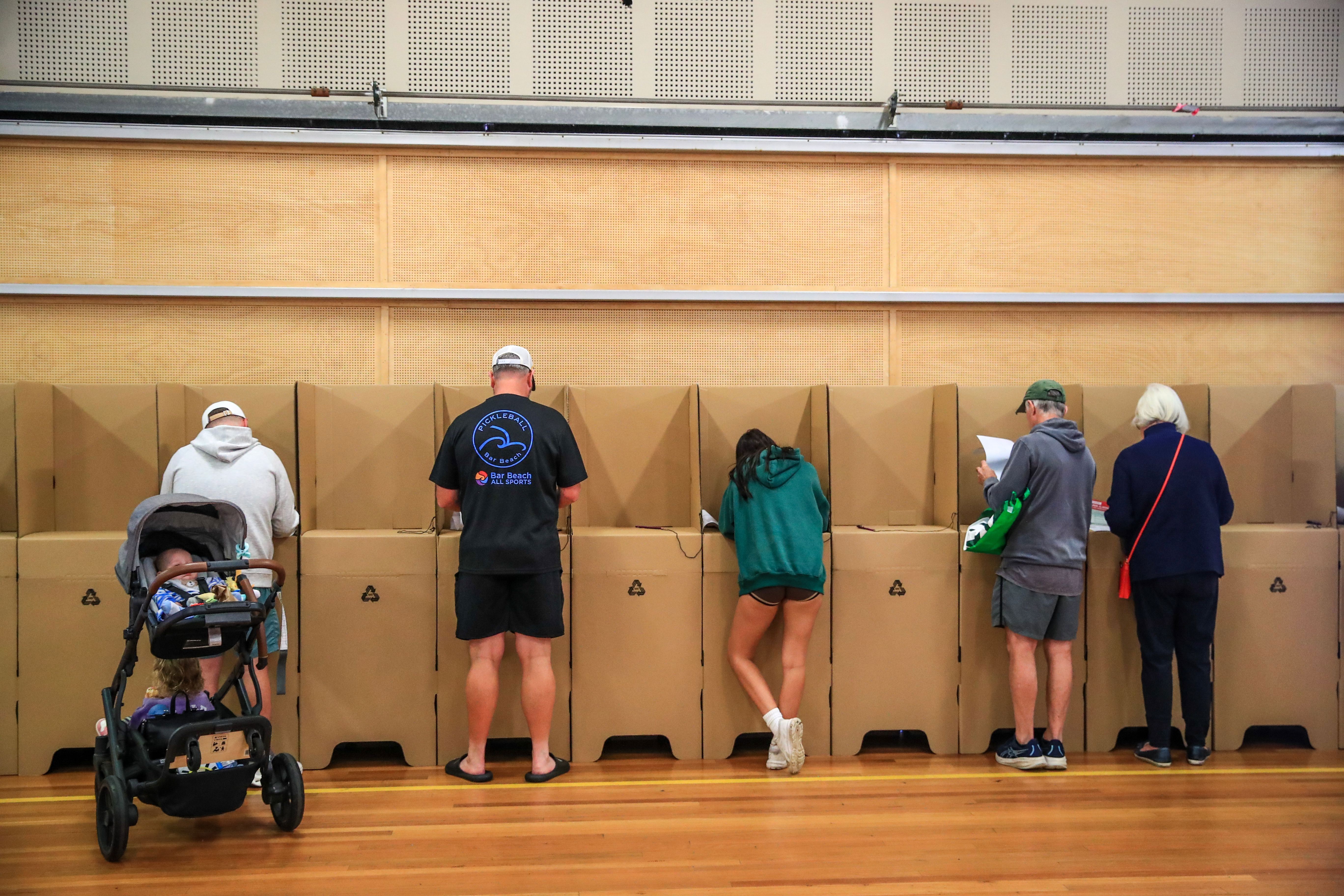 Australians turn out to vote as leaders make last pitches
Australians turn out to vote as leaders make last pitches
 The key seats that could propel Labor to a second term in government
The key seats that could propel Labor to a second term in government
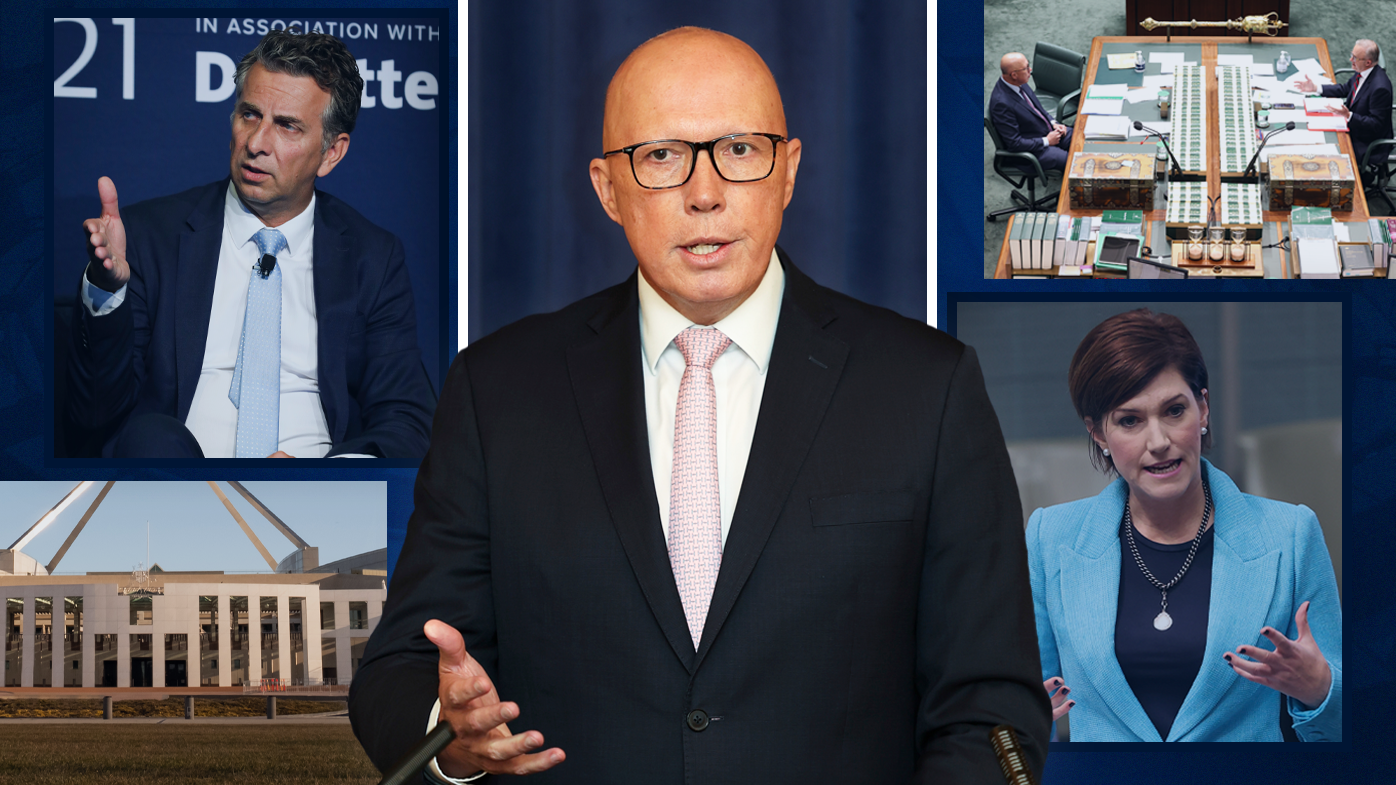 The suburbs that could make Peter Dutton prime minister
The suburbs that could make Peter Dutton prime minister
 Man who injected himself with snake venom 856 times helps create new anti-venom
Man who injected himself with snake venom 856 times helps create new anti-venom
 Aborted landings due to Army helicopter near airport 'unacceptable,' official says
Aborted landings due to Army helicopter near airport 'unacceptable,' official says
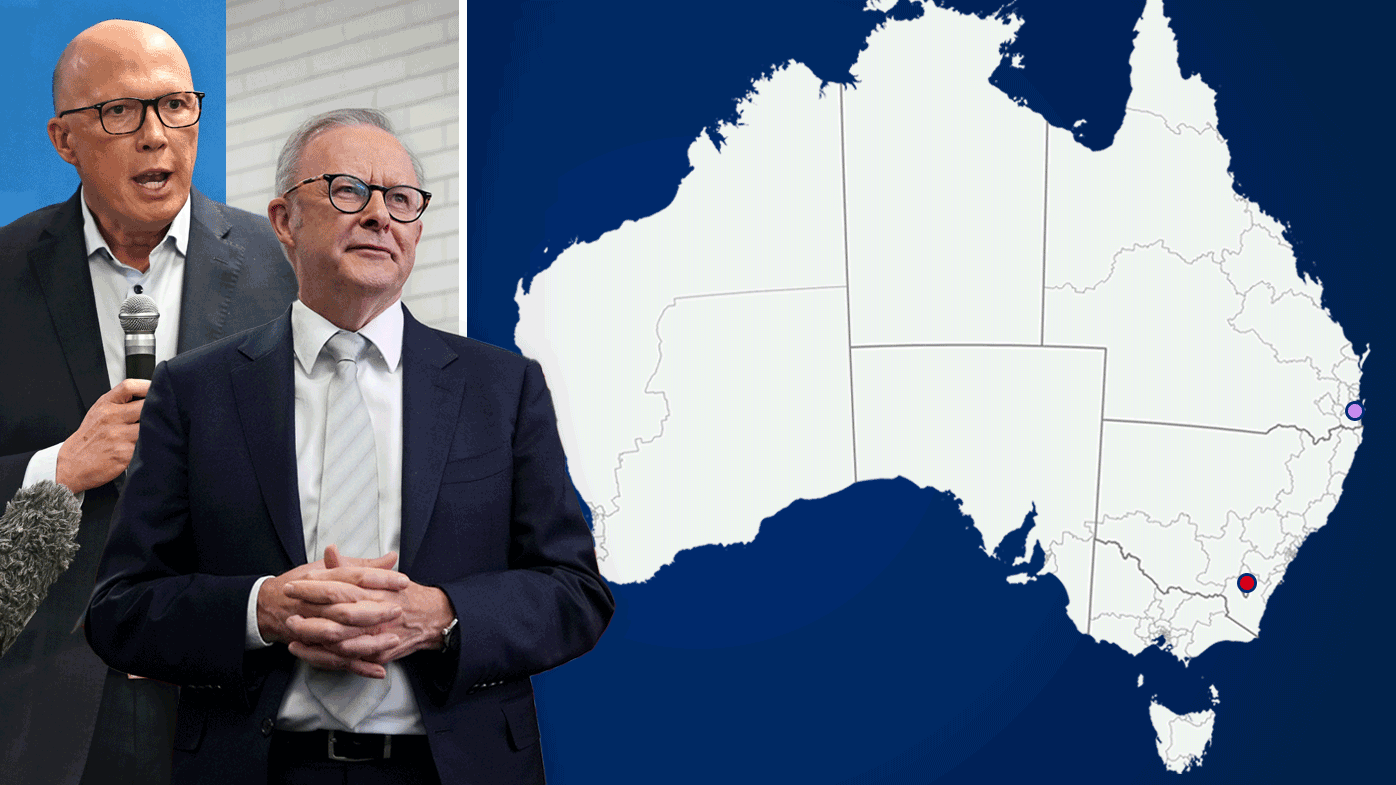 The gruelling 100,000km journey to the election
The gruelling 100,000km journey to the election
 How would you react in a crisis? These people ran into the face of danger
How would you react in a crisis? These people ran into the face of danger
 How independents will shape the federal election
How independents will shape the federal election
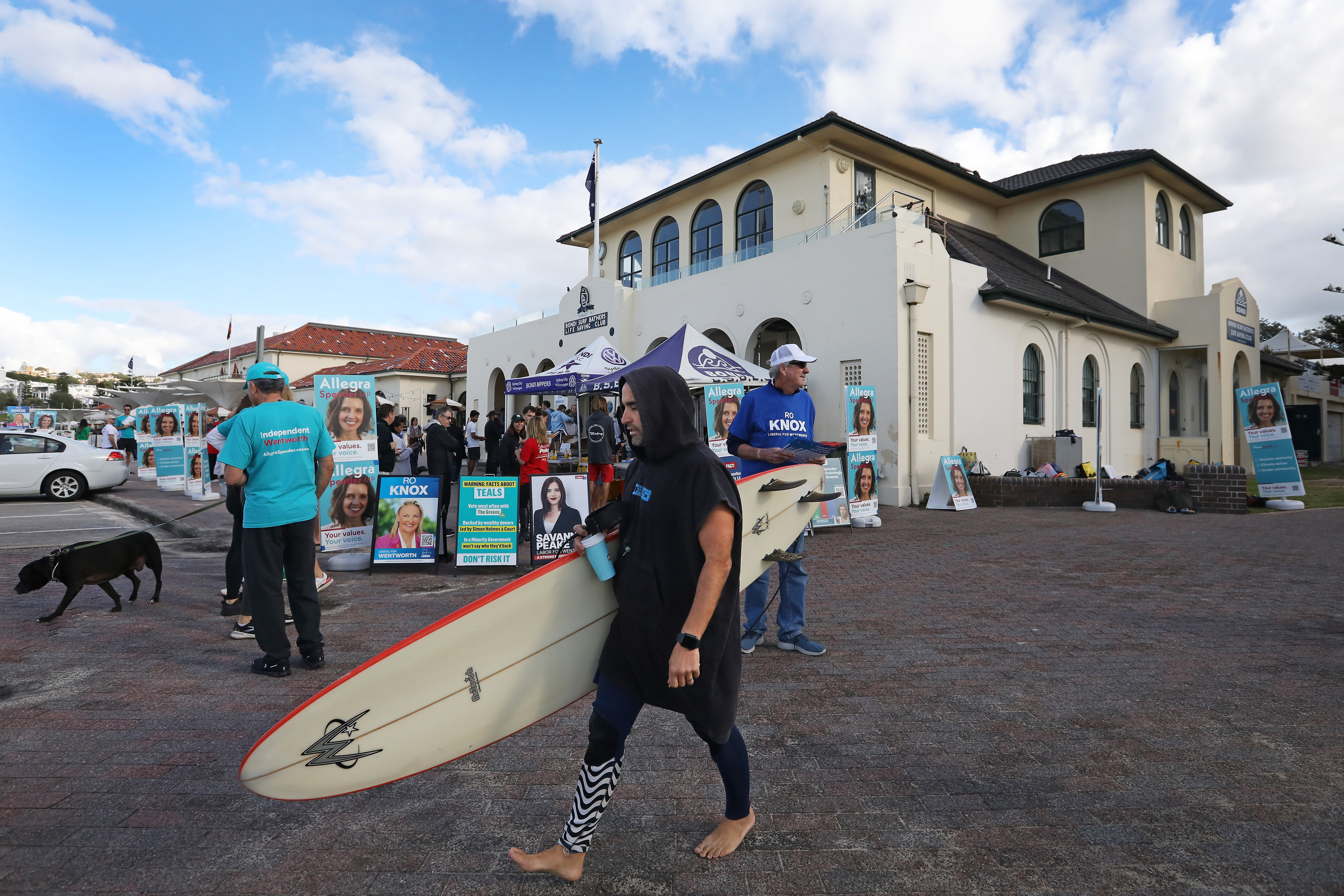 Millions of Australians head to the polls
Millions of Australians head to the polls
 Where to get your democracy sausage while casting your vote
Where to get your democracy sausage while casting your vote
 What they sell used to be 'taboo' but business is booming for women like Scarlett
What they sell used to be 'taboo' but business is booming for women like Scarlett
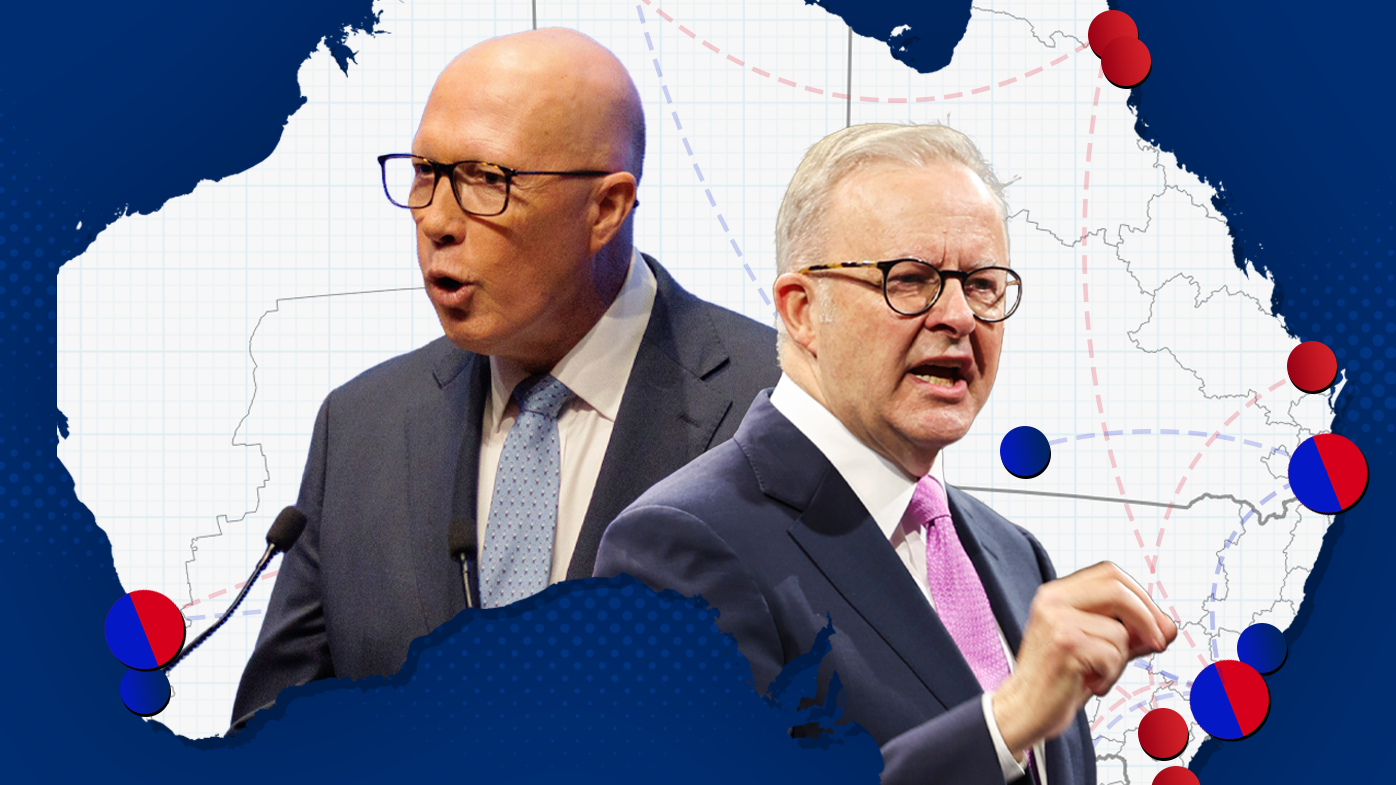 Where Albanese and Dutton have been on the campaign trail
Where Albanese and Dutton have been on the campaign trail
 Albanese and Dutton make their final 1-minute pitches to voters
Albanese and Dutton make their final 1-minute pitches to voters
 Prince Harry loses appeal to restore government-funded security detail
Prince Harry loses appeal to restore government-funded security detail
 Mushroom cook 'aggressive' to in-laws before lunch, court hears
Mushroom cook 'aggressive' to in-laws before lunch, court hears
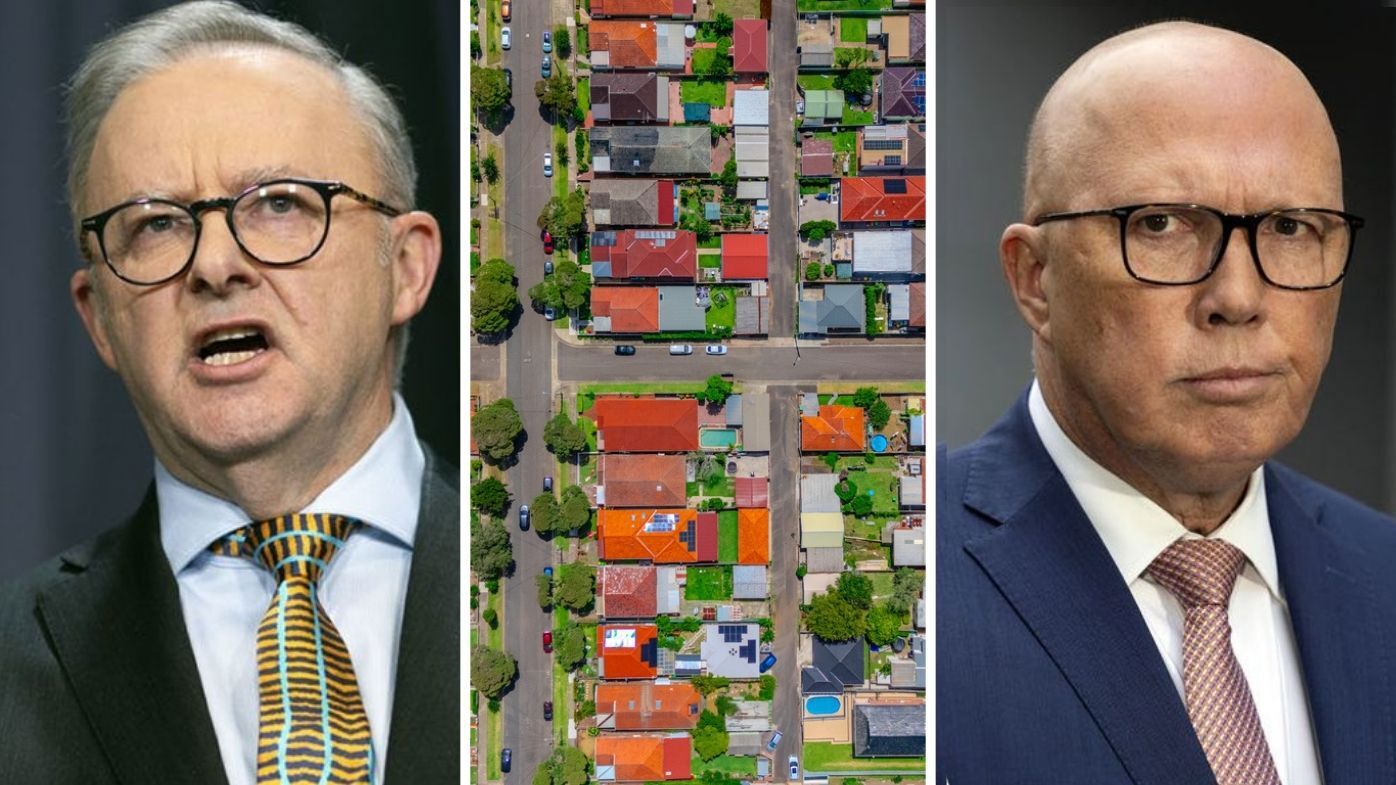 Whoever leads Australia, readers say no solution to housing crisis
Whoever leads Australia, readers say no solution to housing crisis
 Election day arrives as leaders end campaign in multi-state blitz
Election day arrives as leaders end campaign in multi-state blitz
 Election day weather to bring plunging temperatures for voters in one state
Election day weather to bring plunging temperatures for voters in one state
 US Army plans for parade with 6600 soldiers coincide with Trump's birthday
US Army plans for parade with 6600 soldiers coincide with Trump's birthday
 Major emergency after helicopter crashes into beach
Major emergency after helicopter crashes into beach




